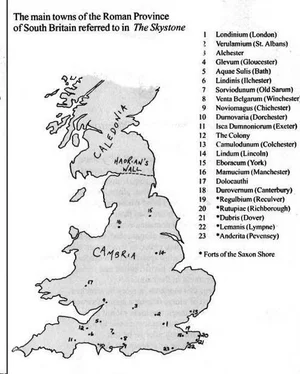Mitros poured white, crystalline powder from a phial into the pot already bubbling on his small brazier, and then removed the vessel from the coals almost immediately, pouring its contents into a shallow bowl to cool until I could drink it. The larger vessel on the big brazier contained a grey, viscous liquid that bubbled heavily, almost like the mud it resembled. Both mixtures, I knew, contained opiates that would dull my senses against the pain Mitros would shortly begin to inflict upon me. I would drink the mixture in the shallow bowl first, when it was cool enough. Even heavily flavoured as it was with fresh crushed mint, it tasted foul, but it was magical. Mitros had told me it was made from a substance rendered from the gum of poppies grown far to the east, beyond Byzantium. It conquered pain in proportion to its own potency. Each day Mitros made the mixture stronger, and each day my awareness of the pain diminished.
When the opiate had numbed me sufficiently, Mitros would undo my bandages and wash and clean the wounds that swept up into the centre of me, using hot water and astringent cleansers that I could not have tolerated without the assistance of the potion. Then, when he had finished, he would dress the wounds again, packing the inner bandages with an almost unbearably hot poultice of the foul-smelling, clay-like mixture from the big brazier. The poultice itself also held a painkiller, more powerful in its own way than the other, so that by the time the effects of the draught had worn off, the magic of the poultice had numbed my leg completely, leaving me able to sleep again until the following day.
Mitros tested the draught in the bowl with the knuckle of his little finger. It was evidently still too hot for me to drink. I swallowed a mouthful of saliva nervously, sniffed, and glanced towards Britannicus. He slept on, flat on his back, his great, hooked beak of a nose pointed to the roof of the tent. I remembered again his words to me on that first night we met, about having to decide what to do with me, and I grinned at the recollection. In the years that had elapsed since that night, Caius Britannicus had had more to concern himself with than what he would do with me. My grin grew wider, and I wondered what he might have done without me.
"Here, now we drink, and we grow well." Mitros was standing beside me, the bowl in his left hand as he reached with his right to support my head.
"Do we, by God? Well, Mitros, since we're doing it together, I've got an idea. Why don't you drink it today and I'll watch, the way you usually do?
That way, we share the pain and the pleasure."
"Not amusing. Come."
I obeyed him, quietly and meekly, in the absence of alternatives. The concoction tasted awful. I can still remember the acidic bitterness of it, decades later.
When the bowl was empty, Mitros returned my head to the pillow and wiped my brow with a damp cloth. "There, now. Soon you will be asleep."
And soon I would, but not immediately. Sleep drifted in very slowly after that draught, and sometimes it did not come at all; consciousness remained in a kind of dream state, where awareness still functioned but earthly problems like pain and discomfort disappeared completely. Mitros had returned to his braziers, and now he lifted the other pot away from the heat, using a stout, wooden handling device to distribute the weight of the heavy vessel. He carried it to the sturdy table at the foot of my bed and left it there before crossing to the door of the tent, where he signalled for two soldiers to come and remove the braziers. I watched all of this in a kind of daze, eventually realizing that everyone had left the room and that I was alone, except for Britannicus.
Cains Cornelius Britannicus was a true Cornelian, a direct descendant of the pure, patrician stock of the founding families of the Roman State. During those early days of confinement, practically strapped to his bed and unable to influence anyone to change anything, Britannicus talked, sometimes for hours and hours, about his life in Britain as a citizen, rather than as a soldier. I remember I found that surprising at first, primarily because I had known him until then only as the military Legate Britannicus, the taciturn, professional commander who normally kept his company and his opinions to himself. As time passed, however, I discovered that I barely knew him at all. Whatever intimacies he and I had shared as companions in arms had exposed only a few small facets of the man's fascinating character and personality to me. Now, as he talked and I listened, more and more of the man inside him began to emerge. A paternal ancestor — his great-great-grandfather, in fact — had won his cognomen, Britannicus, through his efforts on behalf of the province in the time of Hadrian, more than a hundred and fifty years earlier, and his whole family had come to think of Britain as home over the intervening generations, although their primary allegiance remained always to Rome. For my part, I had been born in Britain and had grown to manhood without ever being really aware of it. I never thought of it as being an important place; it was simply Britain, the place where I lived. It took a few years in Africa, followed by years of enthusiasm on the part of Britannicus, to show me what Britain really meant to me.
He talked at great length and with real affection about his family and about their home, a villa close to Aquae Sulis, the famous hot water spa in the south-west. I heard the pride in his voice when he spoke of his wife, Heraclita, whom he evidently worshipped and whose imperial Claudian blood was as ancient and noble as his own. He spoke proudly, too, of his first-born son, Picus, who, like Caius and all his forebears, would join the ranks of the legions when he reached sixteen. The boy was eight now, almost nine, so there was no rush to find a place for him in the imperial ranks. For the next five years at least, young Picus would remain at home with his younger siblings: a sister, Meleiia, who was seven years old and the favourite of her doting father, and four-year-old twin brothers Marcus and Paulus. He talked of a sister called Luceiia and a brother-in-law called Varo, who owned an estate beside the Britannicus lands in the west and who acted as caretaker cum estate manager to the family in Caius's absence. Someday, he swore, when his duties were over and the Empire no longer required his services, he would return and assume stewardship of his own lands.
Early on in our association, Britannicus and I had discovered that we had both been born in Colchester, the oldest Roman settlement in Britain. His family had moved away early in his boyhood to live in the region south of Aquae Sulis, in the family villa, but he had always retained happy memories of Colchester. Traditionalist that he was, however, he always insisted on calling it by its original name of Camulodunum. Colchester, he maintained, was a bastard name, Celtic and Roman mixed, which stood only for 'the camp on the hill.' As a name, he said, it lacked character. In the course of one discussion it came out that his father had had a friend in Colchester who had been a smith, and owned his own forge. This man's name had been Varrus, too. Britannicus didn't connect the name with me, personally, because no Roman citizen of his connection would have willingly worked with his hands. When I told him that this Varrus had been my own grandfather, his eyes widened with surprise, and he had wanted to know how Varrus the Elder had come to pursue a life of manual labour.
The answer to that was short and simple, and I had no worries about telling him the story of my grandfather, who had in fact been Varrus the Younger, youngest son of a minor branch of the famed Varus family. Over the course of centuries, our branch of the family had acquired an extra "R" in the spelling of its name and had, in the same process, lost almost all of the wealth associated with the one ‘R’ Vari. My grandfather himself had been brought up by slaves, which was not unusual in Roman households, but had become fascinated as a young boy with the smithy attached to the house. Drawn to the atmosphere of smoke and heat and the clanging of the smith's hammer, he haunted the place. The smith, for his part, took a liking to the young nobleman and taught him as much as he could about the art of forging and working with metals. It was a love that was never to leave the boy, and eventually, when he left the army, he set up a smithy of his own.
Читать дальше









